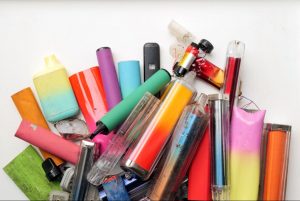Saudi drinks giant ‘pressurised’ Nichols into U-turn

VIMTO maker Nichols was sued by a Pakistani firm because it allegedly altered the terms of a licensing deal after coming under pressure from one of its oldest customers, the Middle East drinks giant Aujan Industries.
Last month a High Court judge awarded the claimant, Gul Bottlers, £8m in damages, a figure which heavily dented the Newton-le-Willows-based firm’s £10m interim pre-tax profit.
According to the court judgement, Gul’s chief executive Shaheryar Leghari was told by Nichols’ Middle East and Asia sales manager at meetings in Dubai in 2012 that Aujan “had an issue” with Gul producing the Vimto double strength cordial (DS).
Giving evidence Mr Leghari said that he was “stunned and confused” but did his best to reason, stating that Gul would be in a very difficult position as it had already prepared for the launch and ordered bottles.
Saudi-based Aujan, now partly owned by Coca Cola, has had a 90-year relationship with Nichols whose chairman John Nichols has known the owner of Aujan, Sheikh Adel Aujan, for more than 30 years. The drink, invented in Salford by Mr Nichols’ grandfather, is hugely popular in the Middle East, particularly at Ramadan when it is a staple post-fasting drink.
Nichols initially said that its deal with Gul was only for single strength cordial but backed down during the case. However, it continued to argue that Gul’s refusal of an offer made in January 2013 was “an unreasonable failure to mitigate”.
Nichols’ original agreement with Gul stipulated that shipments of the drink, in concentrated form, would cost £7 a litre. Nichols then changed this to £26 a litre, mitigated by a “marketing contribution” of £19 a litre, which brought the price back down to the original level.
Mr Justice Cooke said: “This was no doubt done with a view to being able to represent to others, particularly Aujan, that the price being charged to Gul was comparable to the price being charged elsewhere by Nichols.”
But this was complicated by the fact duty would be charged on the new official price. The changes left Gul confused, and in an email Mr Leghari said: “When we signed our agreement, our entire strategy was devised according to the prices we were purchasing the concentrate from you. If you look at the pricing schedule (£7 per litre) and compare it to the price you have revised (£26 per litre) it leaves us completely clueless as to what is happening on your end.
“Please note that the board is not taking kindly to your continuously changing position and the changes proposed are not acceptable. You need to tell us clearly whether you wish to continue with our partnership on the agreed terms.”
In further communications Nichols stressed the £7 price was for single strength concentrate while £26 was the double strength rate. But Gul did not proceed and took legal advice.
Mr Justice Cooke said: “Aujan had reason to oppose the production of DS Cordial in Pakistan since it feared that it would impact on its own sales in that territory, although it had no franchise for it under the terms of its own distributorship agreement. From the documents and evidence before me, it is clear that Aujan exported to Pakistan and in consequence there existed what is known as a “grey market” for Vimto products in that country.”
He added: “The emails show the pressure being put on Nichols by Aujan to prevent the manufacture of DS cordial by Gul in Pakistan for distribution there with presumably objection to the prices that Nichols proposed to charge Gul, as compared with that paid by Aujan.”
In a stock market statement issued last month, Nichols described the judgement as “extremely disappointing” and said it was considering an appeal.
The case was heard in the High Court in London in June. Nichols was represented by DLA Piper while White & Case acted for Gul.







